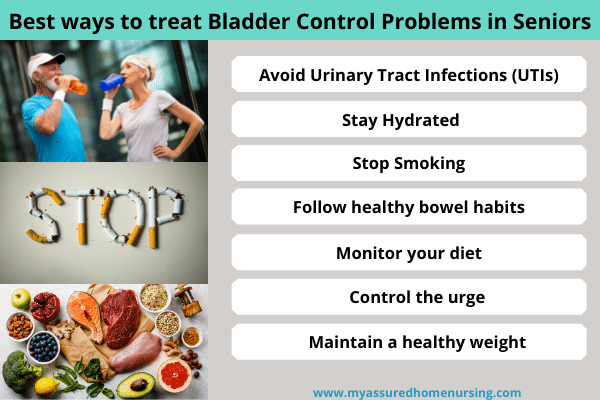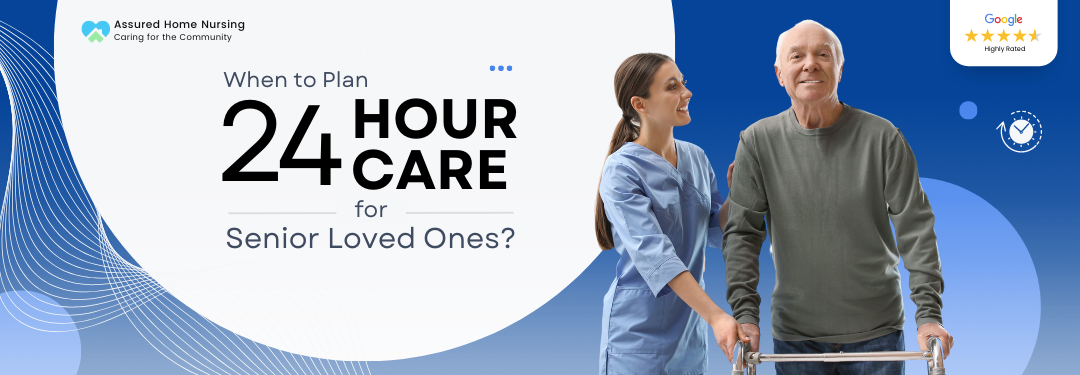For many people, a visit to the bathroom is a hesitancy action. But for about 33 million Americans, it is not so simple because they have an overactive bladder that results in frequency, urgency, and bladder leakage problems.
Urinary incontinence is an embarrassing problem that is most commonly experienced by older people, especially in women. It is often referred to as loss of bladder control, where a person leaks urine accidentally.
Urinary incontinence or bladder control problems are not something your loved one has to live with or accept just because of aging. In fact, there are several ways to help your loved ones in managing bladder control problems. Thus, consider reading this blog to understand the different types, the reasons, and the best ways to treat urinary incontinence or bladder control problems.
What is Urinary Incontinence?
Urinary incontinence is the leakage of urine that happens due to involuntary action. When affected, it can range from few drops of urine leakage to a complete loss of bladder control when coughing or laughing.
Is Urinary Incontinence Common for Aging Adults?
Bladder control problems can happen at any age, but it generally occurs in seniors. While aging, several changes happen to the body and these make urinary incontinence more likely.
With normal aging, some of the muscle fibers of the bladder get replaced with fibrotic tissues that are stiffer. Alongside, the neurological responses that we commonly rely on maintaining normal urinary functionalities too get declined. All these eventually lead to urinary incontinence among the older population.
Do Health Issues Cause Urinary Incontinence in Elderly?
There can be many different reasons for urinary incontinence. Here are a few health issues that generally cause bladder control problems in men and women:
- Urinary Tract Infections (UTIs)
- Obesity
- Constipation
- Multiple Sclerosis
- Parkinson’s Disease
- Alzheimer’s Disease
What are the Different Types of Urinary Incontinences?
The most common types of urinary incontinences are:
Stress incontinence
This can occur when abdominal pressure overcomes the closing pressure of the bladder. This incontinence type can occur in both men and women due to surgery or cancer and pregnancy or childbirth respectively.
Overflow incontinence
This can occur when the bladder is never emptied. Mostly, this condition is developed due to obstruction for the urinary tract system or because of a bladder with weaker contractions.
Urge incontinence
This is the most common incontinence type, also known as an overactive bladder. With this bladder control problem, your loved ones may have an urgent need to urinate. Due to this incontinence condition, there can even be a loss of urine while moving to the bathroom.
Total incontinence
This occurs when the sphincter muscle that helps in regulating the fluid flow is not working properly. Due to this issue, your loved ones can experience uncontrollable and constant bladder leakage problems.
Functional incontinence
These result in sudden leakage of urine with an accident. People who have various disabilities such as arthritis and neurological disorders generally face these incontinence issues.
Why UTI is the Most Common Bladder Problem in Seniors?
UTIs are one of the most common bladder problems among seniors. It is caused due to bacteria and there are several other reasons too for developing the risk of UTIs in older ones, such as:
- Having or had an UTI before
- Changes in the immune system
- Being exposed to various bacteria in the care facility or in hospital
- Presence of a urinary catheter
- Experiencing changes in the functionality of the urinary system
- Having health conditions such as Parkinson’s disease, Alzheimer’s disease, diabetes, etc.
What are the Best Ways to Treat Bladder Control Problems in Elderly?

Avoid UTIs
UTIs are urinary tract infections that are most common and can happen anywhere in the urinary system. It isn’t easy to figure out if your loved one is having a UTI as there aren’t any classic signs. These bacterial infections are generally caused among older adults with Alzheimer’s disease, dementia, prolapsed bladder, diabetes, Parkinson’s disease, etc. It is essential for your loved ones to follow certain health tips such as drinking plenty of fluids, avoiding bladder irritants, cleaning the genital parts, etc.
Maintain a healthy weight
If you are overweight, there can be additional pressure on your bladder. It is ideal to maintain a healthy weight in order to reduce the pressure and problems related to bladder functionalities.
Stop smoking
Smoking is not a good habit for your bladder too. This activity can irritate the bladder muscle and even cause repeated coughing spasms that lead to urine leakage.
Follow healthy bowel habits
Constipation is one of the common conditions that can add more pressure on the bladder. To reduce this negative impact on bladder functionality, it is important to follow healthy bowel habits. With this healthy activity, your loved ones can avoid constipation and easily overcome bladder symptoms.
Monitor your diet
When experiencing bladder problems, it is crucial to monitor the food being consumed. Help your loved ones to eliminate the food or beverages that can worsen bladder functionality. Some of such foods include tea, coffee, chocolate, alcohol, citrus juices, spicy and acidic foods, etc.
Stay hydrated
People with bladder problems often skip drinking more water in order to reduce their urination. But this isn’t a healthy practice. The lesser water intake, the more concentrated urine is produced that can irritate the bladder. Thus, help your loved ones to stay hydrated.
Control the urge
The best way to deal with bladder problems is by developing the ability to control urinary urges. There are several good ways that help your loved ones to control sudden urges with an overactive bladder. The general practice to control the urge is depending on the medications and following bladder retraining practices.
How Assured Home Nursing Team will be Helpful?
Having an overactive bladder is challenging for your loved ones to manage. However, the best way to help them in managing bladder problems is by having a companion who can constantly monitor their daily routine and enhance their quality of life.
Caregivers of Assured Home Nursing are well-trained for helping the elderly in every situation. Our private duty aides understand how elderly incontinence can affect the joy and keep them isolated. Thus, our caregiving team follows every healthy measure that encourages your loved ones to follow the best practices to overcome urinary bladder control problems.
With our caregivers’ proper and efficient home nursing services, we are sure your loved ones can soon enjoy their life with more happiness.
Reach us at (248) 593-8134 to get your free consultation today.


